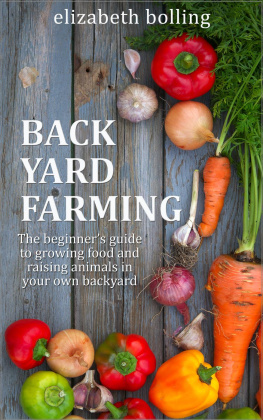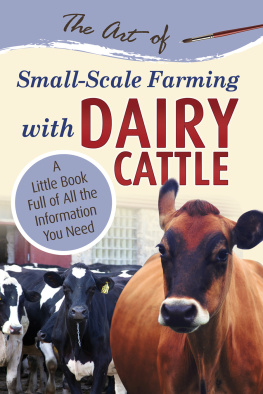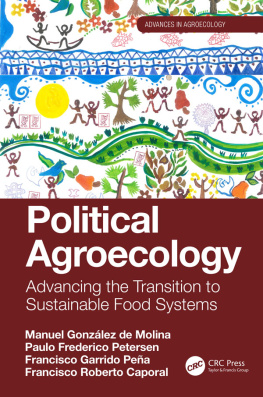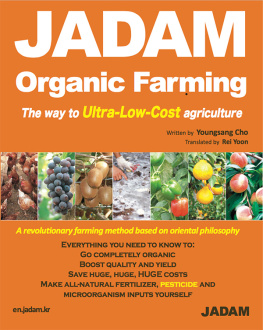Family Farming in Europe and America
Rural Studies Series
Rural public Services: International Comparisons, edited by Richard E. Lonsdale and Gyrgy Enyedi
The Social Consequences and Challenges of New Agricultural Technologies , edited by Gigi M. Berardi and Charles C. Geisler
Rural Society in the U.S.: Issues for the 1980s, edited by Don A. Dillman and Daryl J. Hobbs
Available in hardcover and paperback.
Technology and Social Change in Rural Areas: A Festschrift for Eugene A. Wilkening, edited by Gene F. Summers
Science, Agriculture, and the Politics of Research, Lawrence Busch and William B. Lacy
The Cooperative Extension Service: A National Assessment, Paul D. Warner and James A. Christenson
The Organization of Work in Rural and Unban Labor Markets, Patrick M. Horan and Charles M. Tolbert II
The Impact of Population Change on Business Activity in Rural America, Kenneth M. Johnson
Small Farms: Persistence with Legitimation, Alessandro Bonanno
Studies in the Transformation of U.S. Agriculture, edited by Eugene Havens with Gregory Hooks, Patrick H. Mooney, and Max J. Pfeffer
Family Farming in Europe and America, edited by Boguslaw Galeski and Eugene Wilkening
About the Book and Editors
Much has happened since agricultural economists and rural sociologists met at the University of Chicago in 1946 to discuss family farming. The problems and issues related to the structure of agriculture have been intensified by current economic considerations, which promote the growth of larger-scale commercial farming operations and edge out many smaller farms owned, operated, and worked by families.
In this book, contributors from eleven nations in Europe and North America provide a comparison of farm structure under different economic and political systems, including Poland as an example of a non-market economy. In addition to providing information on how local, state, and international policies have affected the agricultural enterprise, they look at the role of farmers' organizations in policy formulation and take note of changes in farm patterns and policies that have had an impact on farm production, off-farm work, and the welfare of farm families and rural communities.
Boguslaw Galeski is visiting professor in the Department of Sociology and Anthropology at the University of Wisconsin-Stevens Point. He has served as the head of the Department of Rural Sociology, Institute of Philosophy and Sociology, Polish Academy of Sciences at Warsaw, and has taught in Britain, Italy, and New Zealand as well.
Eugene Wilkening is professor in the Department of Rural Sociology at the University of Wisconsin-Madison. He has served as president of the Rural Sociological Society and was honored as Distinguished Rural Sociologist by that society in 1981.
THE RURAL STUDIES SERIES
of the
Rural Sociological Society
Board of Editors
1986-1987
Frederick H. Buttel, Cornell University ( Chair )
Charles C. Geisler, Cornell University (Associate chair)
Rabel J. Burdge, University of Illinois
Frederick C. Fliegel, University of Illinois
Theodore D. Fuller, Virginia Polytechnic Institute and State University
Steve H. Murdock, Texas A&M University
Eileen S. Stommes, New York State Department of Agriculture and Markets
Family Farming in Europe and America
edited by Boguslaw Galeski and Eugene Wilkening
First published 1987 by Westview Press
Published 2019 by Routledge
52 Vanderbilt Avenue, New York, NY 10017
2 Park Square, Milton Park, Abingdon, Oxon OX14 4RN
Routledge is an imprint of the Taylor & Francis Group, an informa business
Copyright 1987 by the Rural Sociological Society
All rights reserved. No part of this book may be reprinted or reproduced or utilised in any form or by any electronic, mechanical, or other means, now known or hereafter invented, including photocopying and recording, or in any information storage or retrieval system, without permission in writing from the publishers.
Notice:
Product or corporate names may be trademarks or registered trademarks, and are used only for identification and explanation without intent to infringe.
Library of Congress Cataloging-in-Publication Data
Family Farming in Europe and America.
(Rural studies series)
1. Family farms--Europe--Case studies. 2. Family
farms--United States--Case studies. 3. Family farms-
Canada--Case studies. I. Galeski, Boguslaw.
II. Wilkening, Eugene A. III. Series: Rural studies
series of the Rural Sociological Society.
HD1476.E85F35 1987 338.1'6 87-2041
ISBN 13: 978-0-367-01363-9 (hbk)
Publisher's Note
The publisher has gone to great lengths to ensure the quality of this book but points out that some imperfections from the original may be apparent.
Introduction
Food production has continued to be a family enterprise in most countries of the world, even with increased industrialization and urbanization. The family owned and operated enterprise has provided the incentives and the commitment of people to produce for their own needs and for others under a wide range of natural, economic, and political conditions. The family farm also provides the basis for self-sustaining family and community life, as well as a way of producing for the market. But farming is increasingly influenced by the market for its products and by the investments in land and other resources by nonfamily interests. So family farms must respond to changing technology and market forces if they are to provide the income and opportunities comparable to nonfarm enterprises. As these forces change, it becomes more difficult for the famliy farmers to survive without local and national policies to support them.
Values other than economic must be considered as they relate to structure of agriculture. These include the maintenance of stable communities and rural population throughout the country. Families who live on the land require adequate social as well as economic opportunities to maintain a good quality of life for the family as well as for the nation. There must also be concern for the maintenance of the natural resources upon which the farm is based. As the family farm appears to be in crisis in the industrialized nations, it is an appropriate time to examine the family farm as it relates to these considerations.
While definitions of the family farm vary among the countries, it is generally regarded as a farm which is owned and operated by a family which may include one or more generations. Most of the land and capital is provided by the family, although additional land may be rented for expansion of the operation and capital may be borrowed for supplies, machinery, and improvements. Most of the labor is provided by members of the family living on the farm, but additional labor may be hired, most often on a seasonal basis. This indicates that the concept of the "family farm" is an "ideal type" in which the farm is owned and operated by a family. This conception varies among countries and is undergoing change as larger operations with improved technology are needed to utilize family resources and to provide an adequate income. Thus, the concept of family farming must be used with flexibility to refer to the extent to which the social as well as economic goals and values of the family are considered in the decisions and policies related to the farm. For example, the average family farm in North America is larger, more specialized, and commercialized than those in Europe, but the family is the risk taking manager and provides most of the labor.












